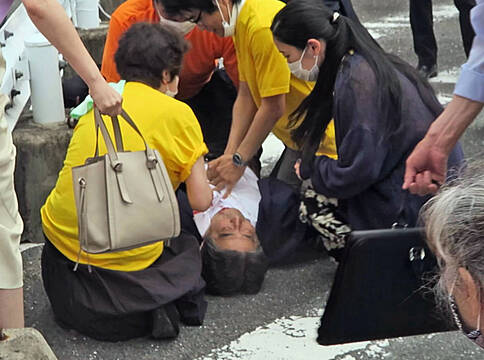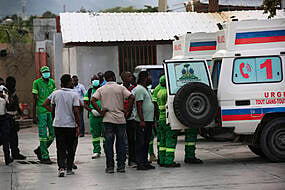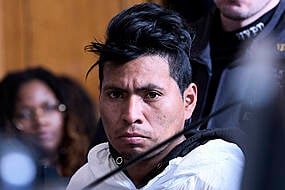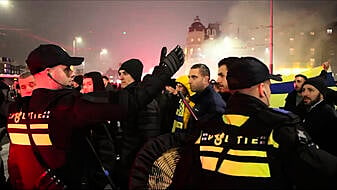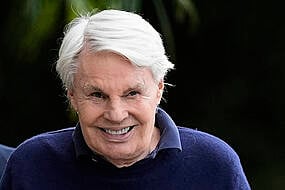Japanese leader Fumio Kishida has said former prime minister Shinzo Abe is in a “severe condition” after being shot at a campaign event.
Mr Kishida said he hopes Mr Abe will survive after the former prime minister was shot while giving an election campaign speech in Nara, western Japan, on Friday.
Local fire service official Makoto Morimoto said the 67-year-old Mr Abe was not breathing and his heart had stopped while being airlifted to hospital.
Utterly appalled and saddened to hear about the despicable attack on Shinzo Abe.
My thoughts are with his family and loved ones.— Boris Johnson (@BorisJohnson) July 8, 2022
Advertisement
Mr Kishida, who belongs to the same political party as Mr Abe, returned to Tokyo from a campaign trip after the shooting.
The Prime Minister told reporters Mr Abe was receiving the best medical treatment. “I’m praying for former prime minister Abe’s survival, from the bottom of my heart,” he said.
Mr Kishida called the attack “dastardly and barbaric”, and said that it was “absolutely unforgivable” that the crime had taken place during the election campaign – the foundation of democracy.
Police arrested a male suspect at the scene of the shooting in Nara.

The public broadcaster NHK aired footage showing Mr Abe collapsed on the street, with several security guards running toward him. He was bleeding and holding his chest.
In the next moment, security guards leap on top of a man in grey shirt, who lies face down on the pavement. A double-barrelled device, which appeared to be a handmade gun, can be seen on the ground.
Nara prefectural police confirmed the arrest of Tetsuya Yamagami, 41, on suspicion of attempted murder. NHK reported that the suspect served in Japan’s Maritime Self-Defence Force for three years in the 2000s.
Japan’s chief cabinet secretary Hirokazu Matsuno told reporters: “A barbaric act like this is absolutely unforgivable, no matter what the reasons are, and we condemn it strongly.”
Mr Abe was reportedly shot a few minutes after he started talking outside of a main train station in western Nara.
The popular former leader is still influential in the governing Liberal Democratic Party and heads its largest faction, Seiwakai.

Elections for Japan’s upper house, the less powerful chamber of its parliament, will take place on Sunday.
Mr Abe was giving a speech when people heard gunshots. He was holding his chest when he collapsed, his shirt smeared with blood, but was able to speak before he fell unconscious.
The attack was a shock in a country that’s one of the world’s safest and with some of the strictest gun control laws anywhere.
The Yomiuri Shimbun newspaper printed extra editions, which were quickly grabbed by people on the street to read about the shooting.
Nara, once the capital of Japan, is just to the east of Osaka on the country’s main Honshu island.
Mr Abe stepped down in 2020 because he said a chronic health problem has resurfaced. He has had ulcerative colitis since he was a teenager and said the condition could be controlled with treatment.

He told reporters at the time that it was “gut wrenching” to leave many of his goals unfinished. He spoke of his failure to resolve the issue of Japanese abducted years ago by North Korea, a territorial dispute with Russia and a revision of Japan’s war-renouncing constitution.
That last goal was a big reason he was such a divisive figure.
His ultra-nationalism had riled the Koreas and China, and his push to normalise Japan’s defence posture had angered many Japanese people.
Mr Abe failed to achieve his cherished goal of formally rewriting the US-drafted pacifist constitution because of poor public support.
Former US president Donald Trump said the shooting was “absolutely devastating news”.
He said on his social media app that Mr Abe “was a true friend of mine and, much more importantly, America. This is a tremendous blow to the wonderful people of Japan, who loved and admired him so much. We are all praying for Shinzo and his beautiful family!”
